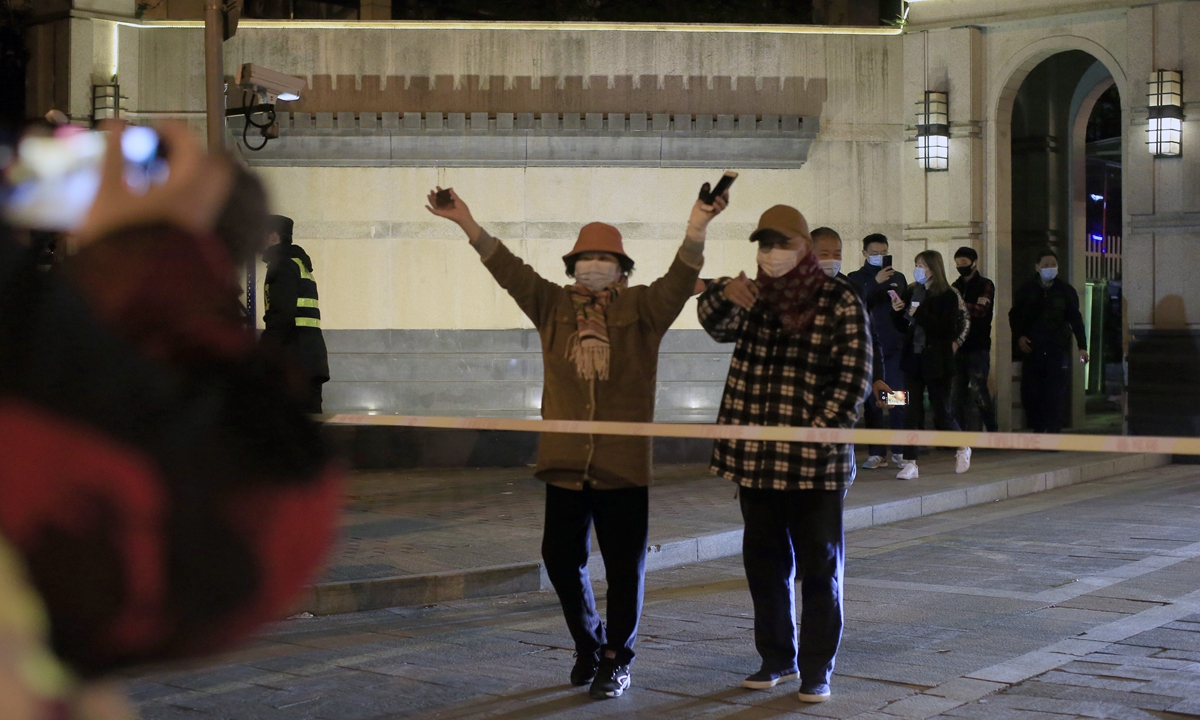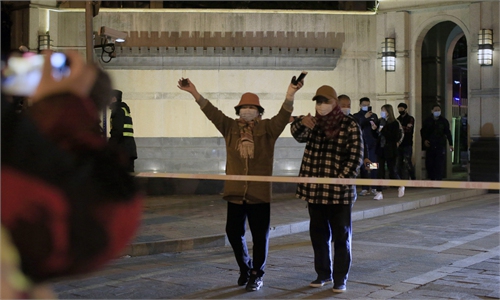
Shanghai's Huacheng Community ended 14 days of quarantine after all residents tested negative for the coronavirus. A couple who live in the community with the husband working at the Shanghai airport tested positive for the coronavirus about two weeks ago. Photo: Yang Hui/GT
One residential complex in Shanghai's Pudong New Area will be downgraded to a COVID-19 low-risk zone from a medium-risk zone from Tuesday, indicating Shanghai will soon become a low-risk region, Wu Jinglei, director of Shanghai Health Commission, said during a press conference on Monday, after at least four complexes' risk levels were raised to medium-risk because COVID-19 cases were reported.
Since November 9, a total of eight COVID-19 cases were reported related to the cargo business at Pudong International Airport. The city authorities immediately set up a working team at the airport and strengthened supervision and related measures to control the virus' spread.
As of December 6, the city transport administration commission has completed 17 inspections over the cargo areas at Hongqiao and Pudong airports.
From November 15 to December 3, the authorities have handled 9,193 imported frozen food containers including 857 containers from COVID-19 high-risk regions, Liu Bin, deputy director of the Shanghai Transportation Commission, said at a press conference on Monday.
The city has completed nucleic acid tests on over 147,000 packs of cold-chain products and related environmental samples covering 1,854 units including wholesale markets, supermarkets and e-commerce platforms; all results have come back negative, said the city authorities.
With the cold winter approaching, Wu also emphasized that the city has pre-arranged plans to prevent the virus' spread. For example, the city will prepare medical facilities including ECMO and respirators in advance, and ensure medical materials, preventive products and testing materials will be fully stocked for the needs of one month.
So far, Shanghai's maximum daily nucleic acid testing capacity has reached 641,000, and a total of 125 medical institutions are capable of conducting tests, with some equipped with mobile labs to identify the presence of the coronavirus.


